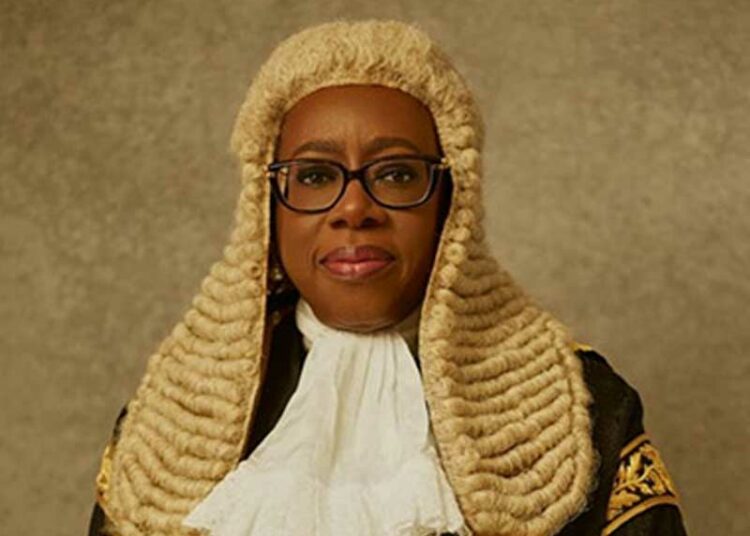The Chief Justice of Nigeria (CJN), Justice Kudirat Kekere-Ekun, has reiterated the lower courts’ significant impact on the public perception of the Judiciary in Nigeria.
The CJN said it is essential to view the lower courts not merely as judicial institutions but as pillars of justice, equity and community engagement.
While declaring the 2024 conference of All Nigerian Judges of the Lower Court open at the National Judicial Institute NJI, the CJN said courts are places where citizens expect swift, equitable, and substantial justice.
She said the lower courts are the primary point of contact between the public and the justice system, particularly for citizens at the grassroots level.
“It is within these contexts that your decisions, orders, and judgments have a far-reaching impact on the lives of individual citizens and entire communities.
“Here, justice is not perceived as a distant, abstract ideal. Rather, it is deeply personal, representing the sense of security that comes from knowing that one’s rights will be protected, that disputes will be resolved fairly and that the law will be upheld consistently. This interaction shapes citizens’ perceptions of justice, fairness, and accountability.
“As Judges, you are not only arbiters of disputes but also guardians of the law. Your astuteness, dedication, and fairness inspire confidence in our judicial system, fostering a culture of respect for the rule of law essential to our nation’s development,” She said.
Acknowledging the considerable challenges affecting our lower courts, she noted that they are overburdened with caseloads, facing limited resources, poor working conditions, and insufficient incentives.
“Many of our lower courts are becoming overwhelmed, leading to a significant backlog of cases. These backlogs not only hamper the efficiency of our courts but also erode public confidence in the judicial system.
Notwithstanding, she urged the judges to remain undaunted by these challenges and strength in the shared mission and continue to explore ways to innovate within the bounds of the law.
“Practical improvements in case management, alternative dispute resolution mechanisms and other tools at your disposal can help to alleviate some of these burdens, and I encourage you to embrace them.”
Speaking on ethical standards, integrity, and professionalism, she expressed the need for it to continue to be the hallmark of the judicial system.
“While our work is challenging, the privilege of being a judge brings a profound responsibility to maintain the highest standards of conduct.
“Our position is one of trust, and we must embody the values of fairness, respect, and diligence in every decision we make.
Therefore, she called on the judges to reflect deeply on the profound power and responsibility that come with their role, guided by a renewed commitment to excellence, integrity, and justice for all Nigerians.
“The public looks to you with hope and expectation, and it is through your diligent efforts that we can continue to build trust in our judicial system,” she concluded.











